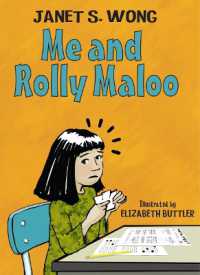Full Description
Vocabulary for Sustainable Consumption and Lifestyles: a Language for our Common Future curates a shared vocabulary of concepts that enables a society-wide conversation about sustainable consumption and lifestyles, the future of consumer society, and ways to transcend it.
Since the United Nations (UN) Earth Summit in Rio de Janeiro in 1992, the global environmental and social consequences of mass consumption have been well documented, yet progress is slow. Overconsumption and extractive practices continue to drive ecological overshoot. Set against this backdrop, each of the 87 essays in this book imparts a meaning to a concept, highlights its history, and offers different perspectives, interpretations, and applications for social change. The two premises of this book are that we need to transition to a society in which the well-being and dignity of people are achieved with a much smaller footprint and that technological solutions are inadequate for the challenge. Policies and actions are greatly lagging behind the growing understanding of the system of production-consumption because social change is often slow, and sustainable consumption does not have a clear political champion. The book addresses tensions that also interfere with progress, such as science versus politics, economic winners versus losers, traditions versus an uncertain future, and present needs versus future costs.
This innovative volume is an important resource for students, scholars, policymakers, grassroots activists, and agents of change interested in sustainable consumption and sustainable living more broadly.
Contents
Preface
Introduction
Cluster I: Daily Household Decisions and Lifestyles
Cluster II: Concepts, Frameworks, and Applied Theories
Cluster III: Political Economy
Cluster IV: Value Shifts and Social Activism Cluster V: Governance, Policy, and Choice Architecture
Afterword
Index








